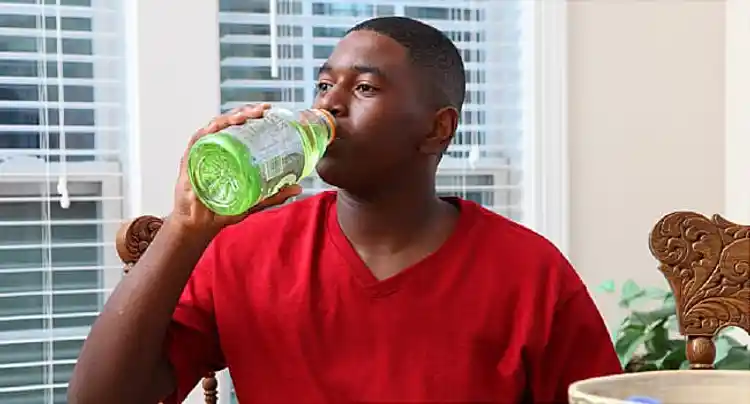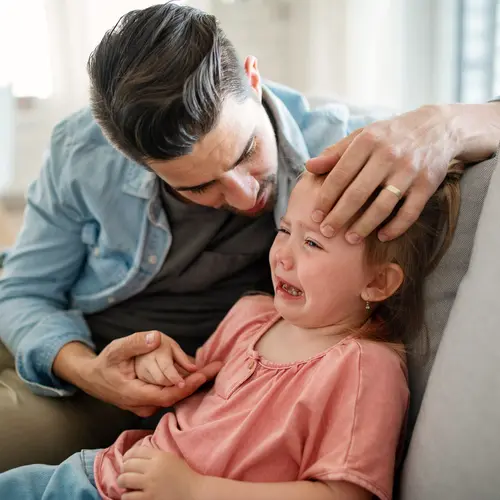Energy and Sports Drinks

Hide Video Transcript
Video Transcript
HANSA BHARGAVA
Sports drinks contain water, electrolytes, and sugar. But they do contain a lot of sugar, some of them equivalent to a can of soda. And unfortunately, when you give your child a sports drink, that sugar can be empty calories, because you're not getting a lot of vitamins the nutrients with it. The best drink to give your child when they're doing physical activity is really water. Now, some kids won't like water. And actually, my 7-year-old son will push back.
So what you can do is maybe put a little bit of fruit juice in there or maybe some sports drink in there and combine it with water. Maybe 2/3 water, a third of the sports drink, and that usually satisfies everyone.
Now, energy drinks. Energy drinks have sugar and water like sports drinks, but they also have caffeine. Let's talk a little bit about caffeine. Some of these drinks actually have the equivalent of four cups of coffee. Would you give four cups of coffee to your child before they went out onto the field? I know I wouldn't.
So it's probably not a great idea to have these energy drinks to give to your child, because caffeine can also have some side effects, like irregular heart beats, sweating, and just feeling jittery.
So in addition to caffeine, just so you know, sometimes they can have other ingredients, like taurine. And these ingredients may not be tested for safety in children or teens. Now, this is because a lot of these companies classify energy drinks as dietary supplements. And then, they no longer have to have the FDA as part of the process.
So now you've got a drink that's got caffeine, ingredients that you don't know about, and safety issues. So just remember that the best way to get your child hydrated and get their best performance out there is a good night's rest, a great meal, and water. That will actually get them where they need to be.

